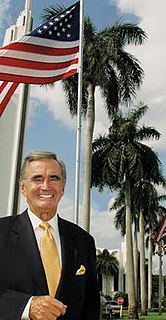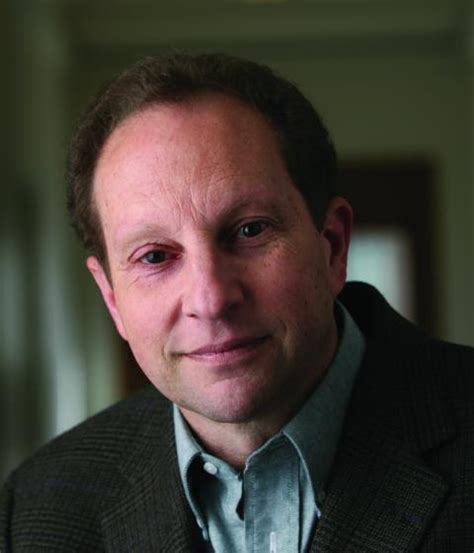A Quote by Swami Vivekananda
The Absolute God of the universe, the creator, preserver, and destroyer of the universe, is impersonal principle.
Related Quotes
The universe shows us the life of God, or rather it is in itself the life of God. We behold in it his permanent action, the scene upon which his power is exercised, and in which all his attributes are reflected. God is not out of the universe any more than the universe is out of God. God is the principle, the universe is the consequence, but a necessary consequence, without which the principle would be inert, unfruitful, impossible to conceive.
At the center of the Christian faith is the affirmation that there is a God in the universe who is the ground and essence of all reality. A Being of infinite love and boundless power, God is the creator, sustainer, and conserver of values....In contrast to the ethical relativism of [totalitarianism], Christianity sets forth a system of absolute moral values and affirms that God has placed within the very structure of this universe certain moral principles that are fixed and immutable.
I believe in God. In fact, I believe in a personal God who acts in and interacts with the creation. I believe that the observations about the orderliness of the physical universe, and the apparently exceptional fine-tuning of the conditions of the universe for the development of life suggest that an intelligent Creator is responsible.
In reading over the Constitutions of all fifty of our states, I discovered something which some of you may not know: there is in all fifty, without exception, an appeal or a prayer to the Almighty God of the universe. Through all fifty state Constitutions, without exception, there runs this same appeal and reference to God who is the Creator of our liberties and the preserver of our freedoms.
One can imagine that God created the universe at literally any time in the past. On the other hand, if the universe is expanding, there may be physical reasons why there had to be a beginning. One could imagine that God created the universe at the instant of the big bang, or even afterwards in just such a way as to make it look as though there had been a big bang, but it would be meaningless to suppose that it was created before the big bang. An expanding universe does not preclude a creator, but it does place limits on when he might have carried out his job!
When I talk to audiences about the size and age of the cosmos, people often say, "It makes me feel so insignificant." I answer, "The bigger and more impersonal the universe is, the more meaningful you are, because this vast, impersonal place needs something significant to fill it up." We've abandoned the old belief that humanity is at the physical center of the universe but more come back to believing we are at the center of meaning.
Wheeler hopes that we can discover, within the context of physics, a principle that will enable the universe to come into existence "of its own accord." In his search for such a theory, he remarks: "No guiding principle would seem more powerful than the requirement that it should provide the universe with a way to come into being." Wheeler likened this 'self-causing' universe to a self-excited circuit in electronics.
We are all connected to each other biologically, to the earth chemically and to the rest of the universe atomically. That's kinda cool! That makes me smile and I actually feel quite large at the end of that. It's not that we are better than the universe, we are part of the universe. We are in the universe and the universe is in us.
It is the duty of all men in society, publicly, and at stated seasons, to worship the SUPREME BEING, the great Creator and Preserver of the universe. And no subject shall be hurt, molested, or restrained, in his person, liberty, or estate, for worshipping GOD in the manner most agreeable to the dictates of his own conscience; or for his religious profession or sentiments; provided he doth not disturb the public peace, or obstruct others in their religious worship.
I believe in a personal god who cares about me and worries and oversees everything I do. I believe in an impersonal god who set the universe in motion and went off to hang with her girlfriends and doesn't even know that I'm alive. I believe in an empty and godless universe of causal chaos, background noise, and sheer blind luck... I believe that life is a game, that life is a cruel joke, and that life is what happens when you're alive and that you might as well lie back and enjoy it.



































